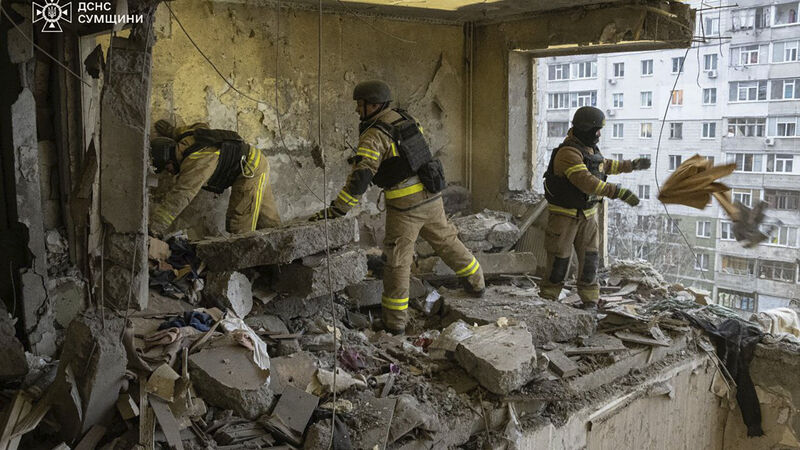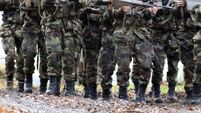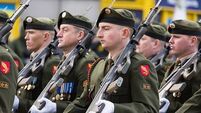Climate change pushing armies towards 'Mad Max-like' type of warfare, Defence Forces told

Rescuers search for killed civilians when a Russian Shahed drone, similar to that seen inset right, hit an apartment building in Sumy, Ukraine, yesterday. Drones have changed the mode of warfare and the style and way Western armies engage in warfare, says Brendan Flynn. Picture: Ukrainian Emergency Service via AP













